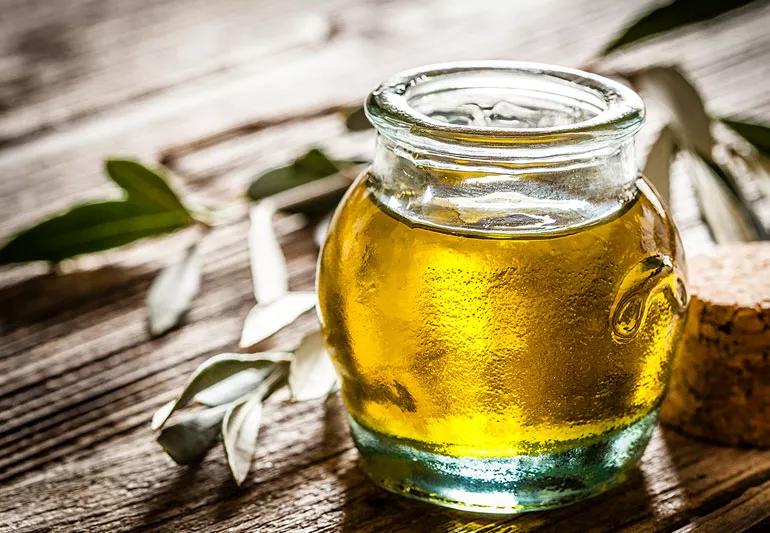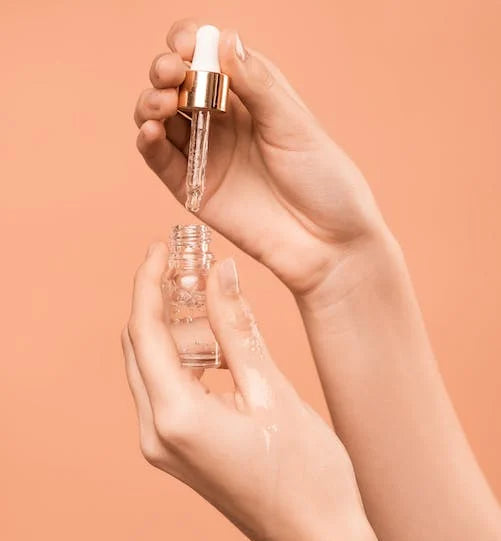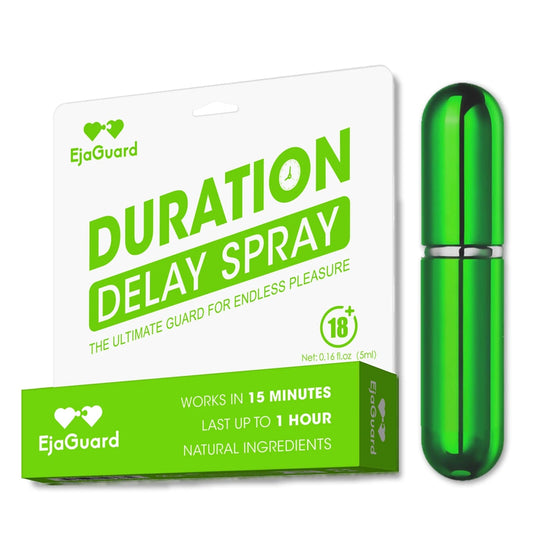Why Look for Personal Lube Alternatives?

Using lube can make sex more enjoyable, comfortable, and less likely to cause irritation or friction. But not all lubricants are created equal.
Some personal lubricants on the market include ingredients that can throw off your body's natural balance or even cause burning, itching, or allergic reactions.
That's where personal lube alternatives come in. Many of these options are already in your home, and some are even better for your skin. Whether you're looking for natural options, something gentler, or just trying to avoid harmful chemicals, there's a safer solution out there.
For those who prefer ready-to-use options, our collection of natural lubricants offers safe, plant-based formulas that save you time and effort.
What to Avoid in Conventional Lubes
Before exploring better options, let’s talk about what to skip:
-
Glycerin: Can increase the risk of yeast infections.
-
Petroleum-based products: Not condom-safe and may trap bacteria.
-
Parabens: Linked to hormone disruption.
-
Fragrances or dyes: Often cause irritation or allergic reactions.
Even lubes marketed as “natural” may contain these. That’s why many people are turning to non-toxic lubricants or homemade lubricants for peace of mind and pleasure.
Natural and Safe Personal Lube Alternatives

Here are the top natural lube substitutes you can consider using:
1. Coconut Oil
Keyword: coconut oil as lube
Coconut oil is a favorite for many—and for good reason. It’s smooth, smells amazing, and has natural antifungal properties.
Pros:
-
Long-lasting glide
-
Moisturizing for the skin
-
Naturally antimicrobial
Cons:
-
Not safe with latex condoms (can cause breakage)
2. Aloe Vera Gel
Keyword: aloe vera lube
Pure aloe vera gel (with no added alcohol or fragrance) is a soothing, water-based alternative.
Pros:
-
Safe with latex condoms
-
Cools and hydrates sensitive skin
-
Gentle enough for most people
Cons:
-
Needs to be 100% pure aloe vera (check the label)
3. Olive Oil
A pantry staple and a skin softener. Great for massage and foreplay.
Pros:
-
Affordable and accessible
-
Thick and long-lasting
Cons:
-
Not latex-safe
-
May stain sheets
4. Vitamin E Oil
A thicker option that doubles as a skin treatment.
Pros:
-
Nourishing for dry or irritated skin
-
Slow to dry out
Cons:
-
Can be too thick for some
-
May alter vaginal pH if used internally
5. Slippery Elm Gel
This natural plant extract is often used in herbal remedies—and yes, even as lube.
Pros:
-
Gentle and pH-friendly
-
Herbal, natural origin
Cons:
-
Harder to find
-
Requires preparation
6. Egg Whites (Controversial)
Some women have used egg whites due to their consistency. However, this comes with risks.
Pros:
-
Natural texture mimics fertile cervical mucus
Cons:
-
Risk of salmonella or allergic reaction
-
Not recommended unless you're experienced
DIY Lube Recipes You Can Try at Home

Looking to create a DIY personal lube with ingredients you already have?
Simple Coconut-Aloe Lube
-
2 tbsp coconut oil
-
1 tbsp pure aloe vera gel
-
Mix and store in a clean glass jar
-
Use a small amount as needed
Oat-Based Gel Lube
-
1 tbsp ground oats
-
1 cup water
-
Boil, stir, cool, and strain into a jar
Always test DIY lubes on a small skin patch first to check for irritation. For those who prefer ready-to-use options, our collection of natural lubricants offers safe, plant-based formulas that save you time and effort.
When to Avoid Certain Alternatives
Even natural doesn’t mean risk-free. Here’s when you shouldn't use lube alternatives:
-
With condoms: Avoid oil-based options (like coconut, olive, or vitamin E oils)
-
If prone to yeast infections: Skip glycerin or sugary formulas
-
With latex toys or dental dams: Stick to water-based options like aloe vera
Your safety matters—always test a new lube on a small area first. To avoid risks during protected sex, opt for our water-based lubricants, specially formulated to be condom- and toy-safe.
Best Lube Alternatives for Sensitive Skin

If you have sensitive skin, you’ll want to avoid fragrances, preservatives, and synthetic ingredients. Stick with:
-
Pure aloe vera gel
-
Slippery elm
-
Water-based organic lubes
Look for terms like non-toxic lubricants, fragrance-free, and pH balanced when shopping—or go the DIY route with safe, plant-based ingredients. For a smoother and safer experience, our non-toxic, pH-balanced lubricants are ideal for those with delicate skin.
FAQs About Personal Lube Substitutes
What is the safest natural lube?
Aloe vera gel is one of the safest natural options, especially for internal use and condom compatibility.
Can I use oil as lube?
Yes, but only if you’re not using latex condoms. Coconut oil and olive oil are popular, but not latex-safe.
Are there homemade lube options?
Absolutely! Homemade lubricants like coconut-aloe blends or oat gels can be made with a few simple ingredients.
Can I use lotion or saliva as lube?
It’s not recommended. Lotions can contain irritating chemicals. Saliva dries quickly and may introduce bacteria.
Conclusion: Choose Safer, Smoother Play
There’s no need to settle for uncomfortable or irritating store-bought products. With the right personal lube alternatives, you can enjoy better sex, naturally.
🌿 Want a safer, body-friendly solution? Try EjaGuard's natural lubricants and delay sprays—designed to keep things smooth without compromising your health.
 Buy Now
Buy Now



